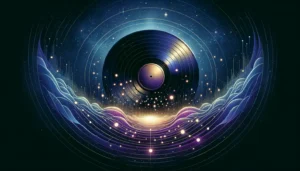Features of animated films for adults
The animated movies for adults they are distinguished by addressing complex and mature themes that go beyond traditional children's entertainment. These works explore philosophical, social and existential questions in great depth.
Through rich and meaningful narratives, these films invite reflection on human life, identity, and emotions, using animation as a means to communicate powerful and subtle ideas.
Deep and mature themes
The themes in these films are usually dark and controversial, addressing loneliness, death, corruption and the struggle for identity. They present emotional dilemmas that connect with adult audiences.
Likewise, they explore social and existential conflicts, creating stories that reflect the complexity of the human condition and offer a space for introspection and critical analysis.
These narratives do not shy away from showing the human fragility and intense emotions, aspects that are often ignored in children's animation, enriching the visual experience.
Innovation in visual and narrative techniques
Adult animated films are characterized by their technical experimentation, using varied visual styles and non-linear narrative methods to emotionally impact the viewer.
They use everything from traditional animation to stop motion and CGI to create unique visual universes that complement their deep and often symbolic stories.
This innovation allows directors to express psychological and social complexity, exploring the art of storytelling with an approach that challenges the norms of conventional cinema.
Emblematic films and their themes
Adult animated films have given rise to masterpieces that explore fundamental themes of human and social existence. These films stand out for their dense and deep narratives that invite reflection.
Some productions have become cultural icons, addressing everything from power and corruption to loneliness and coexistence with nature, evidencing the richness of this genre.
Akira: power, corruption and identity
Akira it is a pioneering film that examines the relationship between excessive power and corruption. His story in Neo-Tokyo reflects the fragility of identity in the face of social and governmental control.
The film combines high-energy scenes with deep criticism, showing how power can distort humanity and unleash violence, marking a before and after in animation.
Additionally, Akira raises questions about evolution and destruction, inviting viewers to question the nature of progress and human destiny.
The Tomb of the Fireflies: loss and human fragility
This work by Studio Ghibli tells the devastating story of two children facing war and loss, conveying the fragility of life and the emotional impact of human suffering.
Through the sensitivity of the animated story, the film represents sacrifice and hopelessness in times of conflict, managing to deeply move the adult audience.
The Tomb of the Fireflies is a powerful reminder of childhood vulnerability and the scars left by war beyond the visible.
Anomalisa: loneliness and human disconnection
Anomalisa it immerses itself in the protagonist's mind to explore the deep loneliness and lack of connection in everyday life. Stop motion animation enhances this introspective atmosphere.
The film subtly and realistically portrays hopelessness and the longing for genuine connection, showing how human relationships can be both ephemeral and essential.
The work stands out for its emotional honesty, capturing the alienation that many adults experience in contemporary society.
Princess Mononoke: nature, war and coexistence
This classic by Hayao Miyazaki addresses the complex relationship between humanity and nature, focusing on war and the need for peaceful coexistence.
The narrative combines fantastic elements with a strong ecological and social message, showing that the balance between progress and preservation is fundamental for survival.
Princess Mononoke raises moral dilemmas that drive reflection on our role and responsibility in the natural world.
Emotional and social explorations
Adult animated films delve into the complex human emotions and in the social dynamics that shape our lives. These works reflect intimate and collective realities.
Addressing themes such as friendship, politics and resistance, these films offer unique perspectives that appeal to both the intellect and the sentiment of the viewer.
Mary and Max and Persepolis: friendship, politics and resistance
Mary and Max it focuses on an unusual friendship between two characters with deep social and personal differences, exploring loneliness and human connection.
On the other hand, Persepolis it narrates the political struggle and resistance from the experience of a young Iranian woman, reflecting identity and the challenges in the face of oppression.
Both films use animation to express intense emotions and social narratives, demonstrating how this medium can convey stories of great emotional and political impact.
The Wild Planet and Paprika: reality, imagination and psychology
The Wild Planet it presents a surreal universe where the perception of reality is questioned, inviting the viewer to reflect on society and freedom.
In Paprika, the border between imagination and reality is blurred, exploring the subconscious and psychological complexities through a visually innovative narrative.
These films challenge traditional conventions by fusing elements of fantasy and psychology, generating a cinematic experience that stimulates the mind and emotions.
Impact and cultural relevance
Animated films for adults have transformed the perception of animated cinema, demonstrating that this medium can address complex and deep topics with great cultural impact.
These works challenge public expectations and offer a new form of artistic expression that influences popular culture and contemporary cinema significantly.
Challenge to the conventions of traditional cinema
This genre breaks with the norms of conventional cinema by using animation to tell stories adult and authentic, which are not limited to fantasy or superficial entertainment.
Innovative techniques and experimental narrative allow us to explore complex emotions and unusual perspectives, challenging linearity and traditional clichés.
Furthermore, these films promote a critical dialogue about society, politics and human psychology, being an art form that demands a reflective and participatory audience.
Reflection on existential and human issues
Adult animated films invite introspection universal existential themes like identity, loneliness, and death, offering a deeper understanding of the human condition.
The use of animation facilitates symbolic and emotional exploration, creating spaces where difficult dilemmas can be addressed in an accessible but profound way.
These works not only entertain, but also inspire us to question the meaning of life and human relationships, becoming essential cultural and personal reflections.






